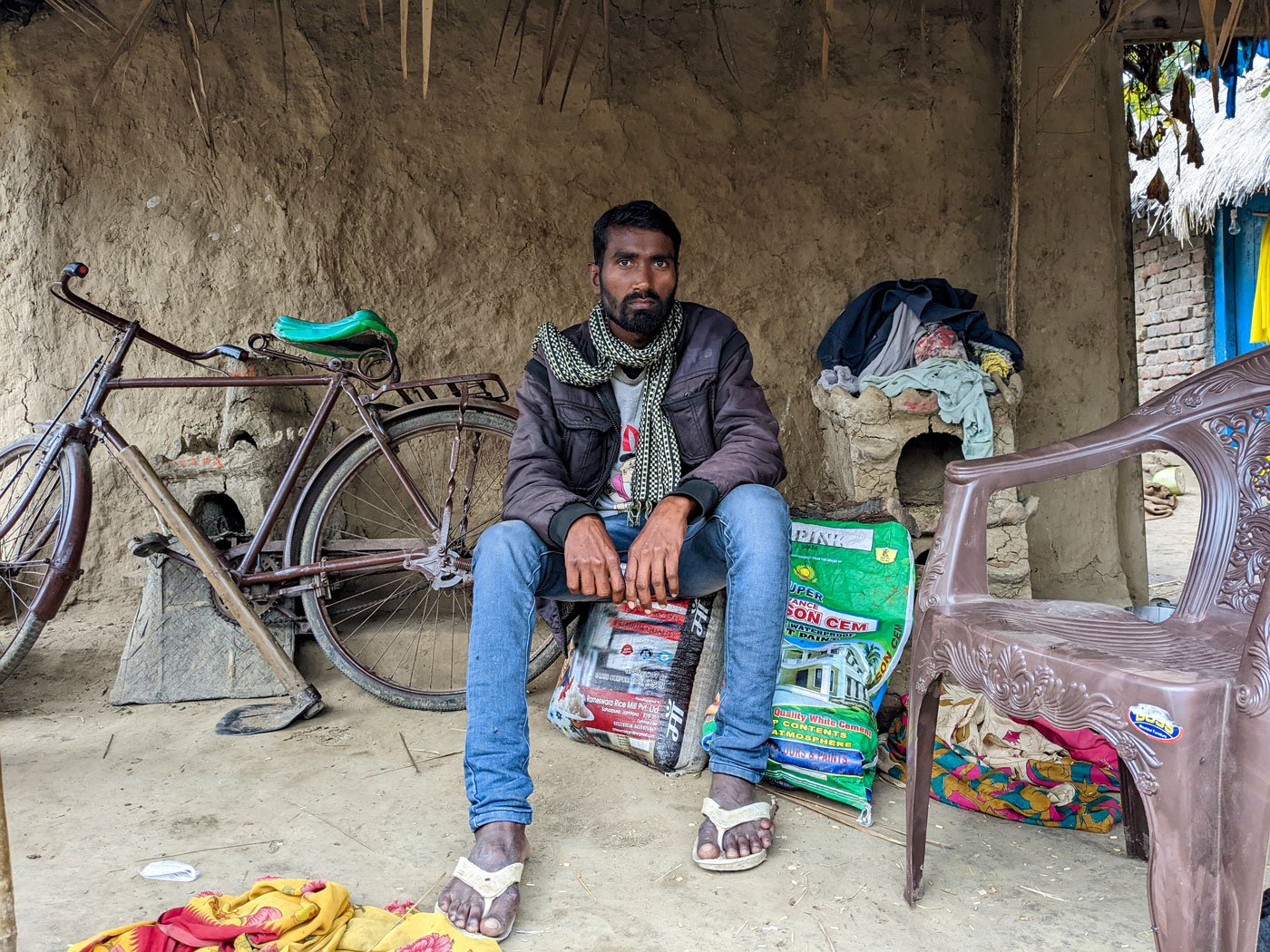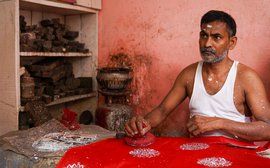Basant Bind has been home for only a few days. A daily wage agricultural worker, he spent the last few months working in farms near Patna, a few hours journey from his home in Salemanpur, a village in Jehanabad district.
The day after the festival of Sankranti held on January 15, 2023, it was time to return to his daily wage work. He travelled to the neighbouring village of Chandhariya to pick up other workers so they could travel to the capital of Bihar together – a team of workers were more likely to get work.
As he was talking to a few people there, a vehicle carrying police and excise officers arrived on the scene. They were the anti-liquor squad constituted under the Bihar Prohibition and Excise (Amendment) Act, 2016 . Their job is, “To enforce, implement and promote complete Prohibition of liquor and intoxicants in the territory of the State of Bihar…’
Seeing the police, people began to run. Basant started running too but, “I have a steel rod in my leg so I cannot run fast.” In a minute or so his luck ran out and, “someone caught my shirt collar and put me in the vehicle,” the 27-year-old recalls.
He told the squad that they should check both him and his house for liquor. But they never did. He felt slightly consoled when, “The police told me that they will let me go at the excise department.”
But when Basant and the anti-liquor squad reached the police station, he found they had already officially noted that 500ml of liquor was found on him. He was charged under the Prohibition Act with the possession of alcohol. The penalty is up to five years of imprisonment and a fine of not less than Rs. 1 lakh for first-time offenders.


Basant Bind works as a daily wage agricultural labourer in farms around Patna. He was returning back to work after celebrating Sankranti, when he was arrested by the anti-liquor squad in Chandhariya, Bihar
“I argued for more than two hours. I told them to investigate.” His pleas went unregarded and a First Information Report (FIR) was registered. When Basant was presented in the district court he says, “I told the judge sahib that no one in my entire family sells liquor. So, release me.” The court called for the Investigating Officer (IO), but the excise officials told the court that the IO was busy with another raid, says Basant, who was then sent to Kako jail. He spent four days behind bars and was released on January 19, 2023, on surety given by his relatives – his mother pledged her land and his cousin (maternal brother) his motorcycle.
*****
There are six police stations in Jehanabad district and a look at the complaints registered at three of them – Hulasganj, Pali and Barabar Tourism, shows that of the 501 FIRs filed, 207 are from the Musahar community. They are ranked among the poorest and most marginalised communities in the state. Of the remaining FIRs, most of the accused are Bind and Yadav, both classified as Other Backward Class (OBC) in the state.
“Most of those arrested are dalit or from backward classes, especially Musahars,” says Praveen Kumar, founder of LAW Foundation, a non-governmental organisation that provides legal aid to disadvantaged communities. “Police drive into the basti and without any proof, take men, women and children and put them behind bars. They cannot afford a lawyer and spend months in jail,” he adds.
Basant’s village, Salemanpur has 150 households (Census 2011), of which only a few have land and depend largely on daily wage work. The population of 1242 is largely made up of Bind, Musahar, Yadav, Pasi and Muslim families.
“This is my house. Just look at me. Do I look like someone who sells liquor? No one in my entire family does that,” says Basant furious at the case filed against him. When Basant’s wife, Kavita Devi, heard that he had been accused of carrying half a litre of liquor, the otherwise quiet person remarked, “Why would he sell it? He never drinks.”
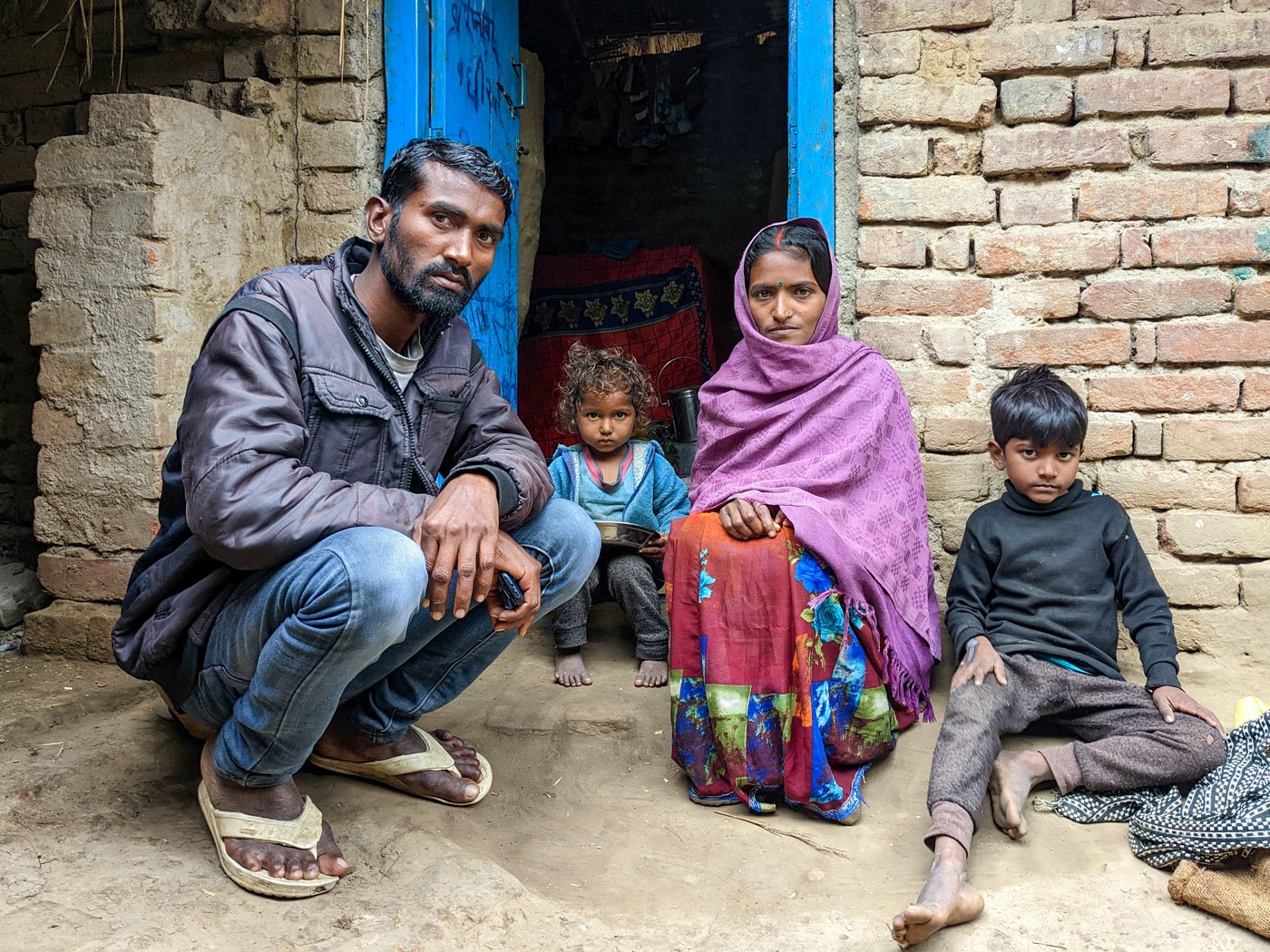
Basant Bind with his wife, Kavita Devi and their eight-year-old son and two-year-old daughter at their home in Salemanpur
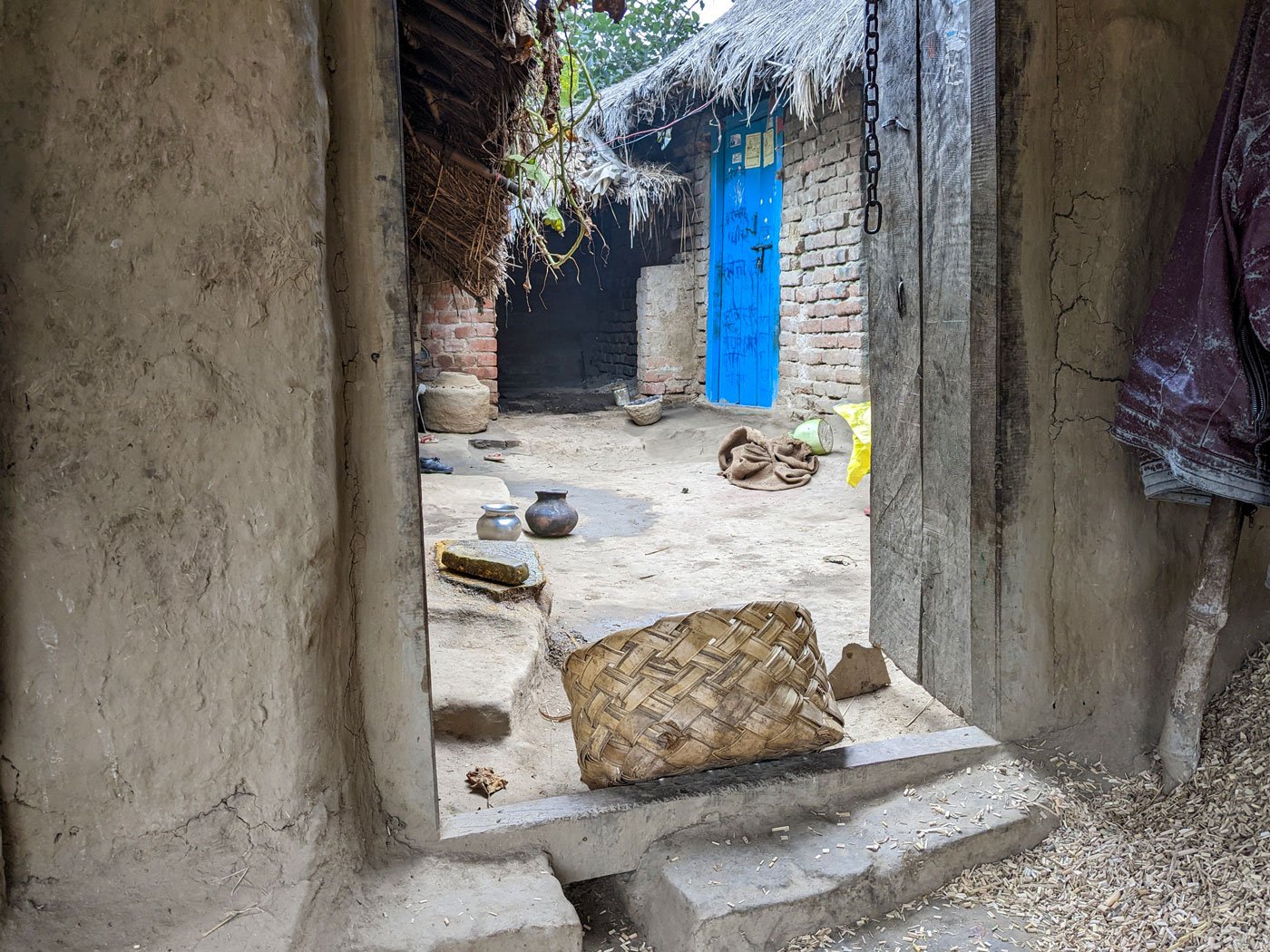

Their home (left) is on the banks of a 30 feet wide canal (right). Residents must walk on the two electricity poles placed across to get to the other side
The family’s brick and thatch house is situated on the banks of a 30 feet wide canal. Two electricity poles placed horizontally serve as a bridge to cross the canal. During the monsoons, the canal overflows with water and it can be fatal to cross using those poles. Their eight-year-old son studies in a government school in Class 1; the elder daughter is five years old and attends the anganwadi , and the younger one is just two.
“I do not understand how this liquor ban has helped us,” says the 25-year-old Kavita. “We suffered [because of the ban].”
Now charged under criminal law, Basant is looking at a long, tedious and expensive legal battle ahead. “The rich get their booze delivered at the doorstep. No one bothers them,” he says bitterly.
Basant has already spent Rs. 5,000 on lawyers’ fees and bail and will likely have to spend more. He also lost out on wages as he could not work: “ Hum kamayen ki court ke chakkar lagayen [Should I go for work or spend time visiting the court]?”
*****
“Do not write my name. You will disclose it and the police will do something to me…you know I have to live here with my children,” Seeta Devi (name changed) looks worried as she says this.
The family live in Musahari, a hamlet three kilometres from the Jehanabad railway station. They are from the Musahar community, classified as Mahadalit in the state – ranked among the poorest communities.
It is a year since her husband, Rambhual Manjhi (name changed) was cleared of all charges under the Prohibition Act. But Seeta Devi is still terrified.

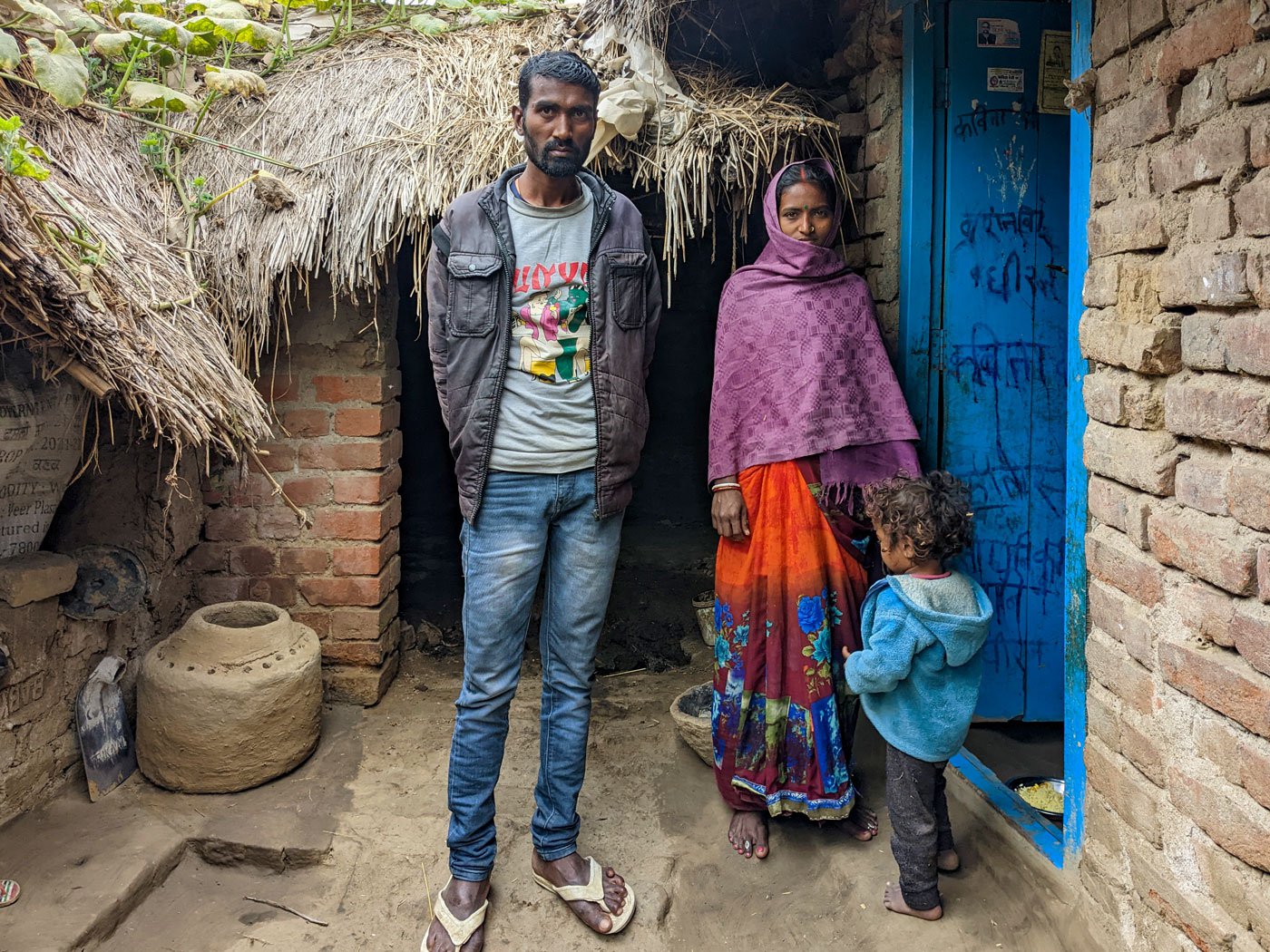
Basant has already spent Rs. 5,000 on lawyer's fees and bail, and likely will have to pay more. ‘How has this liquor ban helped us?’ his wife Kavita asks
Two years ago, Rambhual Manjhi was charged with the possession of liquor under the prohibition act. Seeta Devi says, "There was no liquor in our house. But the police took him with them. We do not make it or sell it. My husband does not even drink.”
However, the FIR said, “On November 24th, 2021, at 8 a.m. police confiscated 26 litres of country liquor called chulai , made of mahua and gud .” The police further claim that Rambhual ran away from the scene and was arrested from his home on December 24, 2021, almost a month after the raid.
With her husband in prison, it was a year of hardship for Seeta Devi. She had to take care of their children – an 18-year-old daughter and two sons aged 10 and 8. When she would visit Rambhual in jail, both would end up crying. “He would ask how we managed, what we ate. He was worried about our children. He would break down when I shared our hardships. I would also cry,” says Seeta trying to hide the tears.
To feed herself and the children she worked as an agricultural labourer and borrowed money from her neighbours. “My parents are bataiyya [tenant] farmers. They gave us rice and pulses; some other relatives also sent some foodgrain,” she says and then falls silent before she adds, “I have a debt of over a lakh now.”
Wrongful arrest becomes difficult to prove when the five witnesses include an informer, a liquor inspector, another inspector and two members of the squad conducting the raid. But as luck would have it, when Rambhual’s case came up for hearing, two of the witnesses denied finding any liquor in his house and the court found serious discrepancies in their statements.
On November 16, 2022, Jehanabad Upper District and Sessions Court discharged Rambhual Manjhi from all charges.
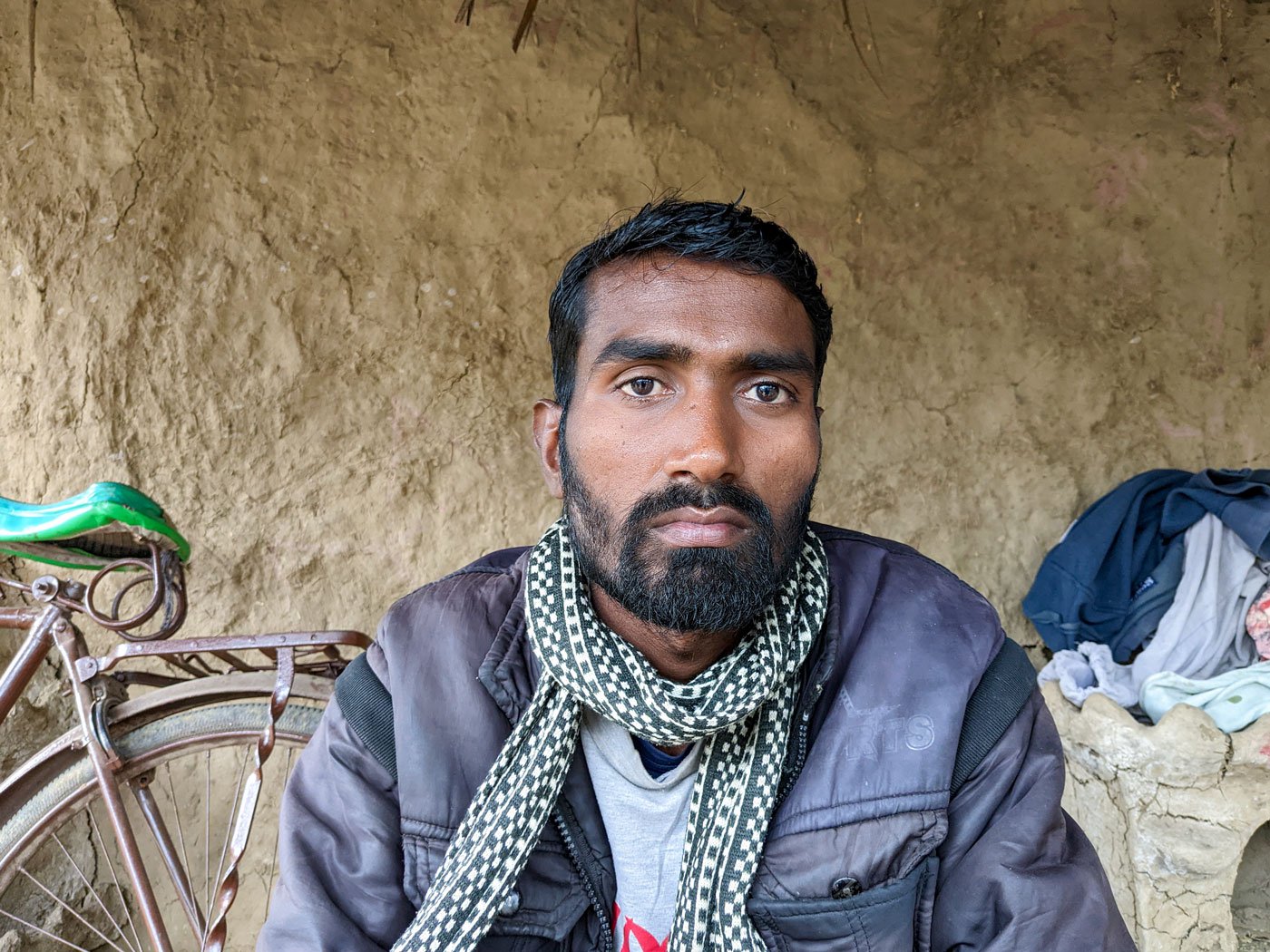
Basant is looking at a long and expensive legal battle for his arrest under the Bihar Prohibition and Excise (Amendment) Act, 2016
“ Sukhal thatthar nikale the jail se [He had become very thin when he came out of jail],” says Seeta Devi.
Within 10 days of his release, Rambhual migrated out of Jehanabad for work. “I wanted to make sure he ate well for two-three months, but he was scared that the police would arrest him again. So, he left for Chennai,” says his 36-year-old wife.
But his story does not end here.
Rambhual was discharged in one case but in 2020, there were two more cases filed against him under different sections of the Act. The data from the Prohibition and Excise department shows that from April 2016 to 14 February 2023, more than 7.5 lakh arrests were made under the Prohibition Act. Of these, more than 1.8 lakh were convicted. The convicts included 245 minors.
Seeta doubts her husband will be let off again. When asked if the liquor ban has helped in any way, she says,“ Konchi kya bujhayega hum ko. Hum to langta ho gaye [How will you explain it to me? We have been stripped of everything]. My daughter is growing up and we will have to think about her marriage. But we just do not know how. We will have no option but to beg on the road.”
In 2021, Rambhual’s younger brother died of some undiagnosed illness and shortly after, in November 2022, that brother’s wife also passed away. Today it is Seeta who looks after their two children, along with her own.
“God has given us a sky full of sorrow. So, we suffer.”
This story is supported by a fellowship in memory of a trade unionist from Bihar who championed the struggles of marginalised people in the state.
